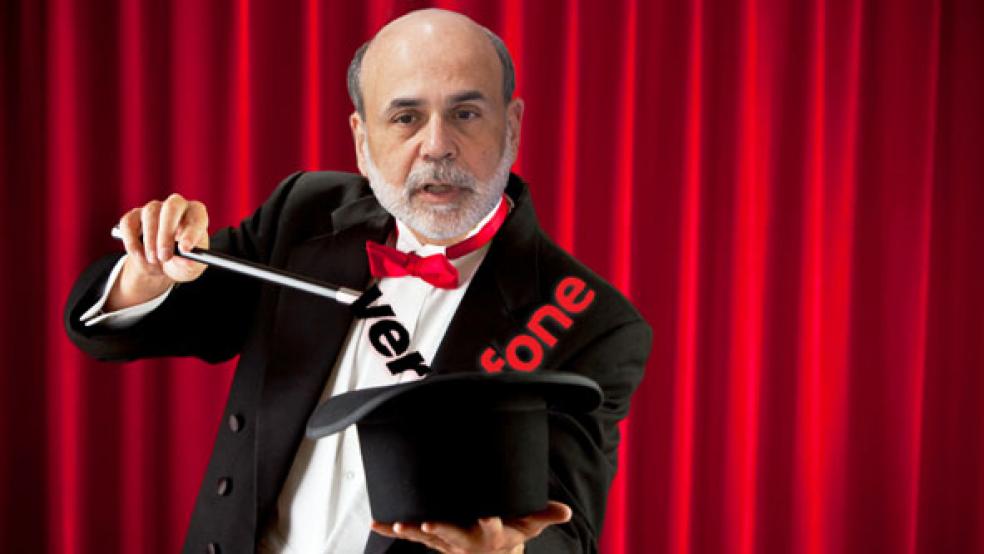Verizon Communications has long wanted to buy U.K. wireless giant Vodafone’s minority stake in Verizon Wireless – but only now are the two companies close to a blockbuster deal. Vodafone confirmed Thursday that it is in discussions to sell its coveted 45 percent stake in the business. The potential deal, which apparently could come as soon as September 2, would be among the corporate world’s largest ever, with a reported price of $130 billion.

If the deal does finally happen, Ben Bernanke’s Federal Reserve will be one reason why.
Speculation and discussions about a deal have been going on for years. Reuters reported in April that Verizon had hired banking and legal advisers for a possible $100 billion bid, but talks then cooled as Vodafone’s leaders and investors publicly held out for a better offer. Vodafone executives also expressed concern that a deal that large could leave the company with a tax bill of $10 billion or more – and would leave it without a valuable U.S. asset at a time when the European economy was still struggling.
"Over the years both sides have had an interest in buying the other side out, and it ebbs and flows," Vodafone’s finance director, Andy Halford, said last month. "The great thing is the business is a good one, most people would love to own that business, so it's just a nice position to be in."
The two sides came together with renewed urgency this summer, according to reports – an urgency fueled, in large part, by fears that rising interest rates could make financing the debt-laden deal harder before long, according to analysts.
“In our view, a rekindling of discussions isn't a surprise,” Barclays Capital analyst Amir Rozwadowski wrote in a note to clients. “Broadly, the factors for a deal (i.e. relative valuation, foreign exchange, interest rates, etc.) remain highly attractive. However, as recent moves in interest rates highlight, these factors may not be as attractive indefinitely, thus potentially serving as a motivator for both parties to come to the table.”
TAPER TANTRUM
Interest rates have already spiked since Bernanke first signaled in late May that the Federal Reserve could slow its $85 billion in monthly bond purchases designed to stimulate the economy. The Verizon purchase, if it comes at a cost of $130 billion, would be the second biggest merger or acquisition on record, behind only Vodafone’s acquisition of Mannesmann AG in 2000, according to Dealogic. Verizon would be taking on about $60 billion in debt to cover the purchase price, meaning that each additional tick higher in interest rates could be quite costly.
The fear of rising interest rates could affect debt-heavy deals, some analysts say. Companies have been moving to issue debt before it becomes more expensive, and they could move more aggressively to complete prospective mergers or acquisitions before financing those deals gets more expensive.
“In the face of a rising rate environment and limited fund inflows, the relative attractiveness or viability of pursuing a large leveraging transaction will start diminishing,” Danish Agboatwala, a credit analyst at Barclays, wrote earlier this week. He noted that the time might be running out on a Verizon-Vodafone deal if the two parties couldn’t reach an agreement before long.
Agboatwala also suggested that rising interest rates could diminish the attractiveness of a hypothetical merger between Time Warner Cable and Charter Communications – another deal that has been the subject of considerable speculation. In that case, assuming as much as $20 billion in debt financing is needed, a 1 percentage point rise in financing yields would cost as much as $200 million more a year. That, the analyst wrote, would wipe out about a third of the expected cost-saving “synergies” from a merger.




